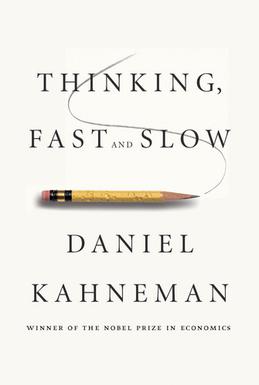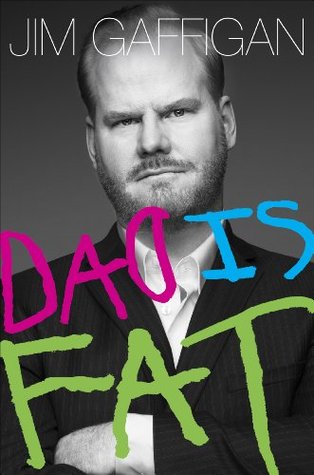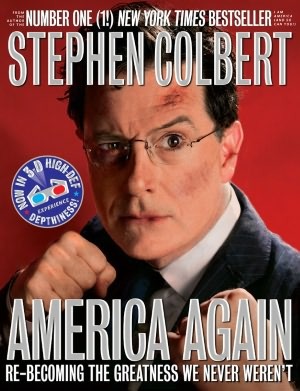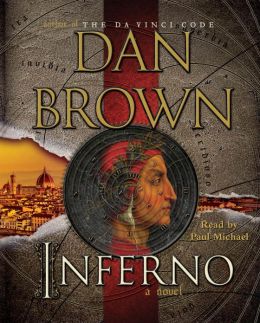I mentioned in my
recent review of Gravity that this was one of two books that the former biology teacher at my school used to assign to her students as a part of a project. Because of that assignment, I have always had this book on the back burner of books to read, after all, biology is not my specialty or interest. However, with the recent
Ebola outbreak I thought it was probably time that I read up on the subject. Having just read
Gravity the virus and its behavior seemed very familiar, but it was also more intimidating knowing that this was real-life.
Prior to this the only Richard Preston book I have read was his conclusion to the posthumous novel by Michael Crichton,
Micro. I was none to impressed by that book and so I didn't have high expectations for this book. There were many times where I felt that the story was compelling, but the storytelling was not. Maybe this is bias from disliking
Micro come through, but it did not seem to be a quality piece of literature. However, the science and a research that went into the book seemed very thorough [I'll discuss below how this has been questioned by some]. The book doesn't go in chronological order and there are plenty of times where the book is open about how there are gaps in what we know about some of the timelines and Richard Preston makes his best guess at filling in those gaps with a compelling, albeit fictional, narrative.
The narrative describes the discovery and initial outbreaks of
Marburg and
Ebola viruses. Both belong together in a family of string viruses called Filoviruses. These viruses have very high mortality rates, but fortunately very low infection rates. This is because the virus is usually spread through direct contact with body fluids. In general, it seems that people are highly infectious before they become symptomatic, but they remain infectious after death. I heard some criticism that Richard Preston focused on the gruesome deaths caused by this disease and that through that he implies that all deaths are violent. This may not be the case, but none-the-less there are these extreme cases where people "crash" and bleed out and can infect many around them, especially medical staff. Furthermore, their remains are still "hot" [infectious] for a while after death. Certainly one of the reasons these diseases have never become widespread is because they are not airborne and they kill off their host.
Reading the details about this made me transition my thinking about volunteers who go work in outbreak regions. Previously I felt that they were crazy. Now, I still think they are crazy, but I also agree that they are heroes who deserve honor and recognition. There has been much criticism of the US and state governments recently about whether quarantine should be enforced upon those returning from areas of Africa where the most recent outbreak of
Ebola Zaire has occurred. Personally, I vote for erring on the side of safety, but we cannot forget good humanity in the situation and need to provide for those individuals while they are waiting, especially those heroes who go work in Hot Zones willingly.
Beyond focusing on the earliest outbreaks of these diseases, Preston also focused on how diseases like this are studied in places like the CDC while people are wearing Level 4 Biocontainment suits. Accidents with the suits seemed to be comically common. Often times minor mistakes were made and pointed out by the author. When this happened in
Gravity I got frustrated because it seemed like everything that could go wrong did, but here in
The Hot Zone it was different because the events were real. Furthermore, the book focused on the 1989 outbreak of
Ebola Reston which occurred in a monkey house a suburb of Washington DC.
The outbreak in Reston was dramatic for several reasons. First it was a new strain of
Ebola that previous had not been encountered. Next, it was contained and cleaned up, which meant the killing of dozens if not hundreds of monkeys in a monkey house by the US Army's Medical Research Institute of Infectious Diseases [USAMRIID] and the CDC. This was the first time that USAMRIDD went into action. USAMRIDD was designed to counter bio-warfare. The monkey house was used to contain and quarantine monkeys who were captured to be research specimens before they were sold. Additionally, this was all done under a cover of secrecy trying to keep the public from finding out what was happening so close to the holiday season. Lastly, the case is notable for two more reasons: 1)
Ebola Reston possibly became airborne and 2)
Ebola Reston was found in several workers at the Monkey House and although it was fatal to primates, it seemed to have no effect on humans. This last point is possibility the most frightening of all because here we have
Ebola that is airborne, but not infectious and in prior outbreaks we've had
Ebola that is infectious, but not airborne. If either virus mutates to develop the missing property we could face an outbreak like we have never seen before.
In the final part of the book Richard Preston returned to Africa and explored Kitum cave, the cave that is probably the source of the
Ebola virus. He said that he grew up in Africa and that the landscape has changed with the building of the Kinshasa Highway which has opened up parts of Africa and enabled the spread of trade and other things across the continent. This part seemed ridiculous because Preston seemed to think that he could go as a journalist and discover what a team of scientists had been unsuccessful at doing. Maybe he just wanted to see the sight firsthand, but then the precautions he took seem like overkill or the whole adventure just fool-hardy. Details of the trip, including photos are available on his
website. He concludes with an idea that I have heard before, but thoroughly disagree with.
The idea is that the Earth is somehow like a living organism that fights off pests on its own. Humans are that pest and viruses are the Earth's immune system. His main point/reason for this is the somewhat recent [1970s] emergence of so many new, infectious, and deadly diseases like HIV/AIDS and Ebola. This was discussed recently by the guys at
ASAPScience in their monthly book club (
#ASAPBookClub). I had read
The Hot Zone independent of them, but happened to be sitting at my computer waiting for my online class to start when they were doing their
Google Hangout to discuss the book on book club with
Joe Hanson of
It's Okay To Be Smart. During the hangout they were taking questions via Twitter and YouTube comments and one of the few that they replied to was
mine which occurs about the 28:30 mark. As I mentioned in the YouTube comments, I agree with Joe that it is wrong to conclude that the Earth is an organism trying to wipe us out. Not even getting into the science of this it puts up a false dichotomy that encourages us to fight the Earth to save ourselves which is the wrong was to go from an environmental standpoint. From a scientific standpoint, I believe that it is probable that there are small communities where resistance to this disease has built up, but that the wider population has not experienced it and so is widely affected by it. To me it seems like the same reason that Native American groups in North and South America were so devastated [as
John Green put it is it essentially the reciprocal of decimated, which literally means to wipe out one-tenth] by European diseases. The situation is a little different since the diseases are coming out of Africa, whereas they went in with the Americas. I just read of a similar odd case in
What If? the book [review to come] by Randall Munroe of
xkcd. He described a remote island of the United Kingdom that seemed to get sick every time an outsider came in on a boat. What happened is new mutations of the common cold came in, everyone [a couple hundred at most] on the island got sick, their bodies fought off the infection, and then they were all immune again. The process of natural selection implies that non-immune individuals in a population are more likely to not propagate and eventually only those who are able to cope with diseases will survive. However, the diseases are also in an arms race and so there is still illness. I have been eager to read
Spillover which is a nonfiction take on diseases and reservoir species as well. Overall, I thoroughly enjoyed the book, I learned a lot from it, even if I am a little freaked out by it.
 1356 by Bernard Cornwell
1356 by Bernard Cornwell



.jpg)










